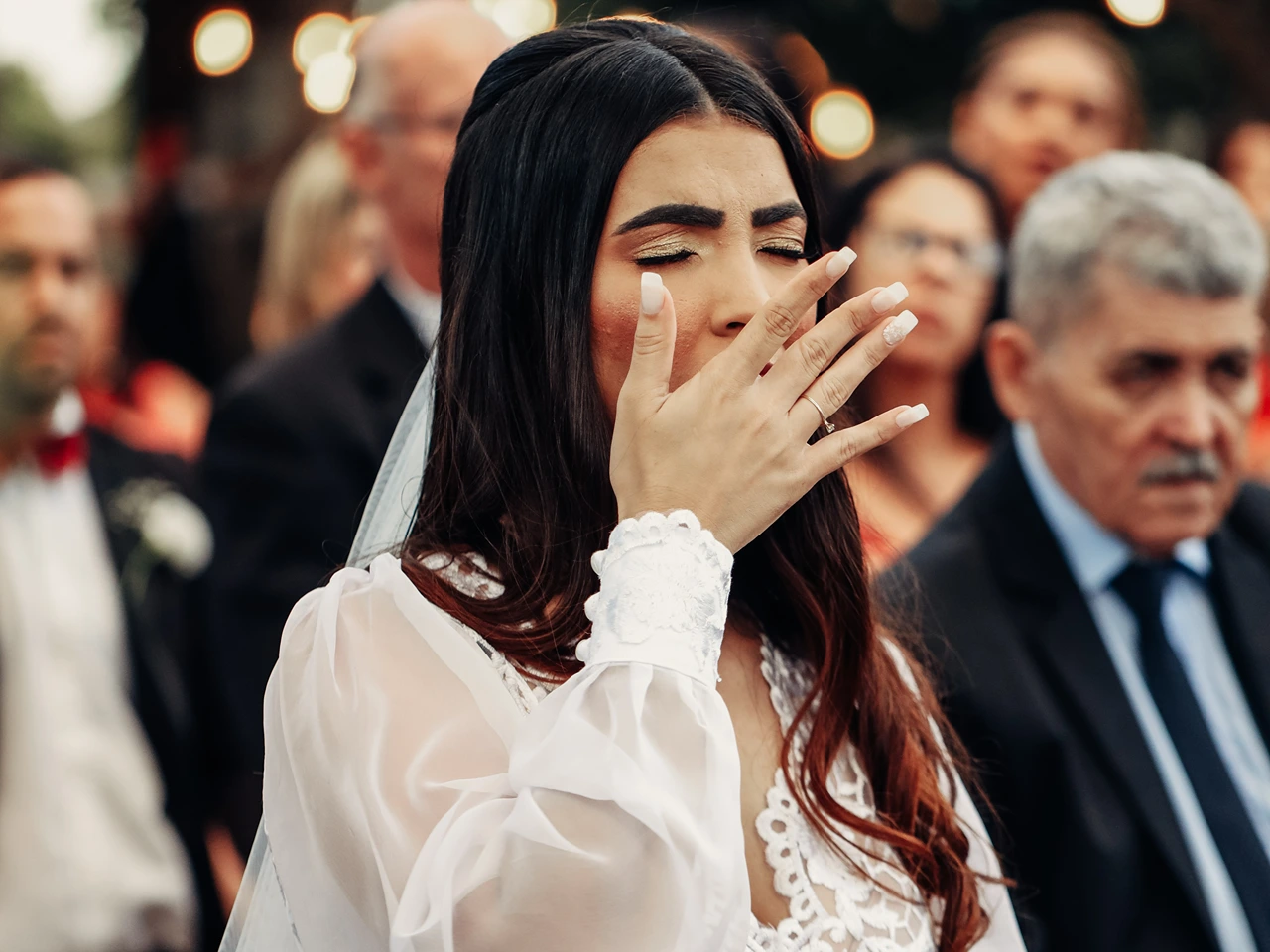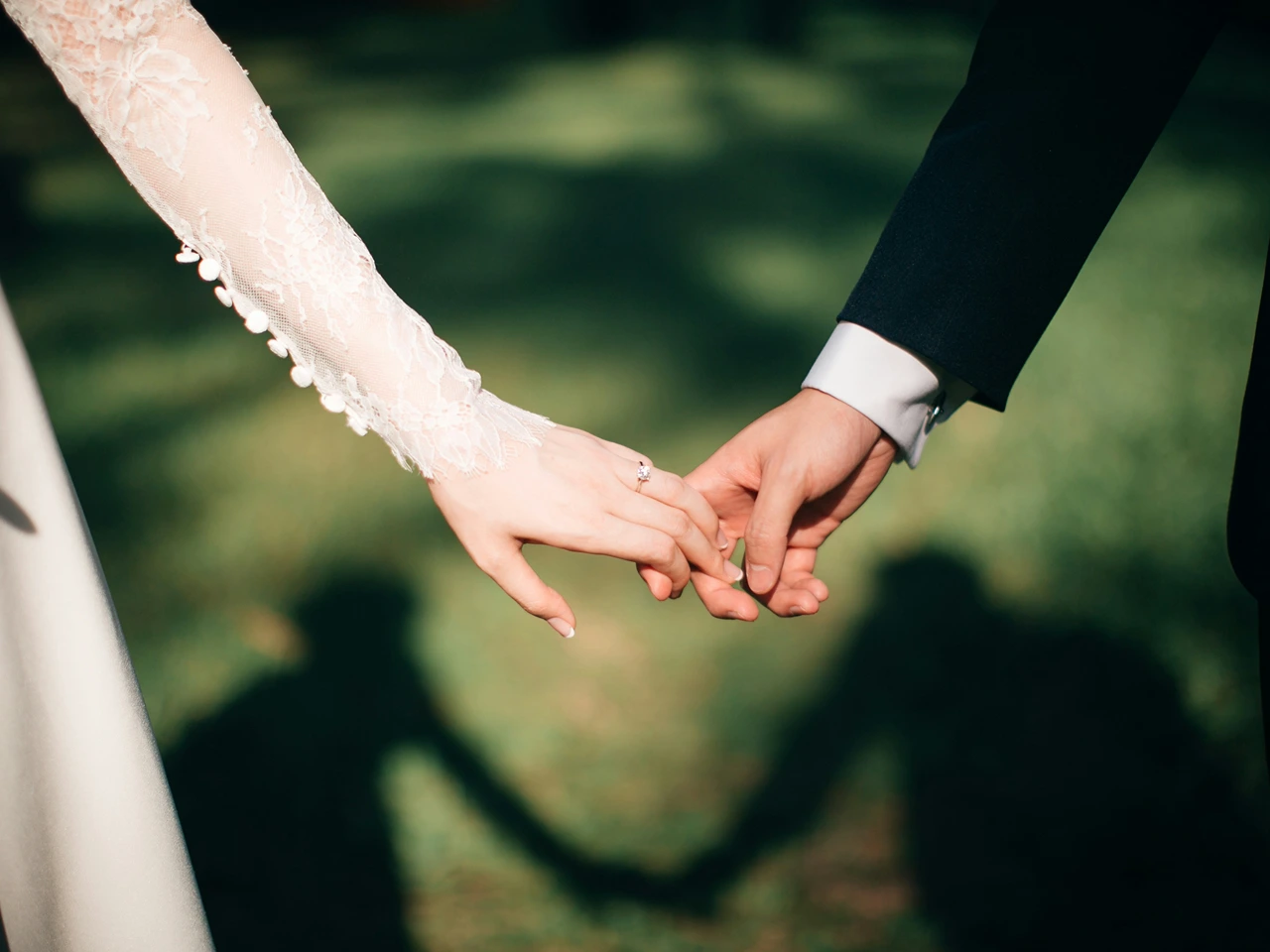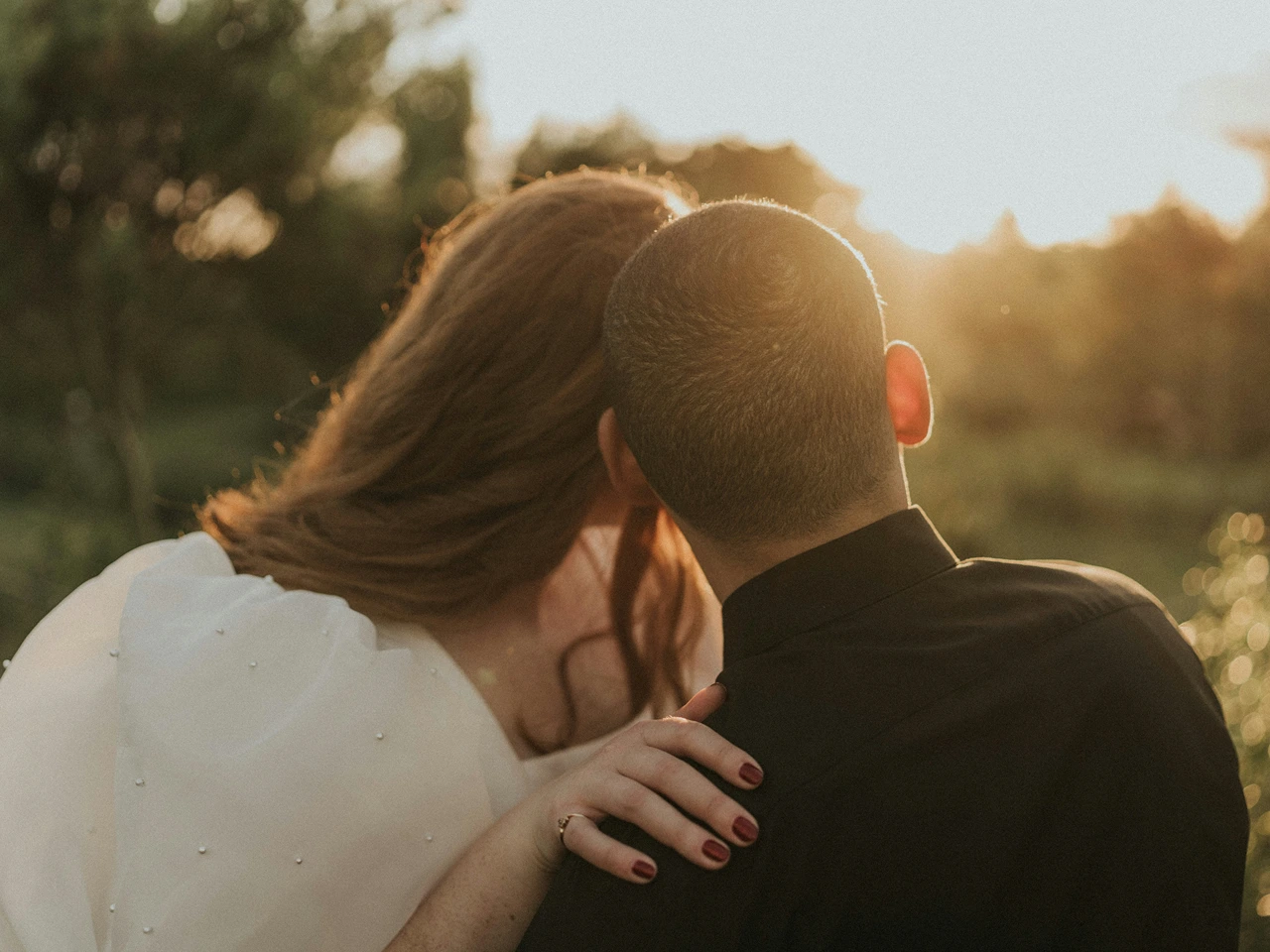
Pre-Wedding Jitters: How to Fight Wedding Anxiety
Struggling with pre-wedding anxiety or cold feet? Learn practical ways to calm your nerves, ease wedding jitters, and feel confident and excited for your big day.

Getting nervous before your wedding? Many brides and grooms experience jitters weeks or even months before the special day. But what’s causing them? Is it just nerves, or is your mind trying to tell you something more? These feelings are a mix of emotional pressure, high expectations and the weight of commitment. While it’s totally normal to feel a wave of stress and anxiety during this big life event, understanding and addressing the emotions behind your pre-wedding anxiety will help you enjoy your big day with clarity, calm and confidence.
In this post, we’ll look at what pre-wedding anxiety really is, what causes it, how it shows up emotionally and physically and how to manage it. After this read, you’ll be able to know how to tell normal jitters from red flags and, more importantly, how to face them with clarity and confidence.
Pre-Wedding Jitters: What is it?

Pre-wedding jitters are a mix of emotional and physical feelings that many people get before they get married. As an engaged couple, these feelings are totally normal and don’t mean anything is wrong. They often come from the stress of planning your big day, the weight of big life decisions, or just coming to terms with the fact that getting married is a big deal. Whether it’s choosing the perfect dress, dealing with wedding party drama or imagining yourself walking down the aisle, almost every couple gets the jitters before their wedding.
Recognizing the Signs of Pre-Wedding Anxiety
- Physical symptoms: These can show up as sleeplessness, fatigue, restlessness, or even an upset stomach. They’re your body’s natural reaction to stress and a clear sign that the pressure is building.
- Emotional triggers: Feeling nervous about the upcoming wedding can be linked to deeper emotions, like fear of the unknown, unspoken worries, or tension from complicated family dynamics.
- Situational factors: A packed wedding planning process, from budgeting to seating charts, can be mentally draining. Add financial stress into the mix, and it’s easy to feel emotionally overwhelmed.
- Daily disruptions: Trouble focusing at work, feeling emotionally distant, or snapping at loved ones may signal that your nervous energy is starting to spill into everyday life.
- Early warning signs: If you're suddenly feeling irritable or losing excitement about the day, it could be your mind’s way of saying you're emotionally overloaded and need to reset.
Getting Cold Feet vs. Genuine Concerns

It’s completely normal to feel anxious before a major milestone like marriage, but there’s a difference between last-minute nerves and serious doubts about the type of relationship you’re in. So how can you tell if you're just getting cold feet or if something deeper needs attention?
- Temporary vs. serious: Getting cold feet often stems from stress, anxiety, or pressure related to planning a wedding. These feelings tend to fade. But if you feel a deep, ongoing sense of dread, it might be your intuition telling you to pay closer attention.
- Ask yourself: Are your worries more about your partner or the chaos of wedding planning? Do you trust your partner and feel emotionally safe in the relationship? Honest reflection can help you understand where your fears are really coming from.
- When to worry: If you're constantly imagining how to call off the wedding or fantasizing about an exit, it's time to pause. Recurring thoughts like these may point to unresolved issues that need more than reassurance.
- Open communication: Talking to your partner about your feelings, even if they're uncomfortable, can clear up doubts, reveal hidden concerns, and bring you closer together as a couple.
- Healthy boundaries: While support is important, don’t let friends or family sway your decisions. Your nuptials are about your relationship, not meeting others' expectations or timelines.
If you’re feeling lost in your emotions and can’t sort them out alone, speaking with a therapist or counsellor can offer unbiased insight before planning a wedding becomes an overwhelming or irreversible step.
Managing Wedding Anxiety Around Your Big Day

As your wedding day approaches, it’s essential to care for your mental and emotional health just as much as you focus on centrepieces and seating charts. Managing anxiety early on will help you stay grounded and enjoy the process of planning the wedding.
Lean on your people
Surround yourself with a strong support system, whether it's a trusted family member, a close friend, or your wedding planner. These individuals can help lighten the load emotionally and handle tasks when you're feeling overwhelmed.
Delegate smartly
You don’t have to do it all. Pass along responsibilities that don’t need your direct input. Releasing control over smaller tasks makes planning the wedding far more manageable and enjoyable.
Time management
Create a plan by breaking major tasks into smaller, achievable steps. A clear checklist helps you stay organized and reduces last-minute stress or confusion.
Practice mindfulness
Incorporating calming routines into your day, such as short meditations or taking a moment to practice deep breathing, can reset your mindset and keep anxiety in check.
Be realistic
Perfection isn't the goal, meaningful connection is. Accept that not everything will go exactly as expected. Even with a few hiccups, your day can still be joyful, beautiful, and entirely yours.
How to Overcome Pre-Wedding Jitters

You may not be able to eliminate anxiety completely, but you can take practical, healthy steps to manage it before saying “I do.” These approaches can help you stay calm, present, and emotionally grounded in the days leading up to your big moment.
1. Understand your triggers
Ask yourself what’s fueling the anxiety. Is it being the center of attention, or fears about the rest of your life? Identifying what’s behind your feelings is a powerful first step toward regaining control.
2. Cope constructively
Don’t bottle things up. Try journaling, taking mindful walks, or opening up to a friend or relative who has gone through a wedding themselves and can offer reassurance from experience.
3. Self-care is essential
The final stretch of planning your wedding can be exhausting. Prioritize self-care through enough rest, relaxation, soothing activities like massages, or even short breaks from wedding talk to recharge.
4. Involve your partner
Whether it's the bride or groom, your partner should be part of your emotional world during this time. Talking about your nerves and your joy can help you both focus on the love that’s bringing you together in the first place.
5. Consider therapy
Couples counselling isn't just for solving problems, it’s a proactive way to strengthen your bond, build communication skills, and approach marriage with more confidence and clarity.
Practical Steps to Stay Grounded When Getting Married

Managing your emotions is important, but don’t underestimate how much the practical side of wedding prep can affect your stress. Taking charge of logistics early helps you feel more present and enjoy the experience instead of being overwhelmed by it.
- Budget wisely: Financial stress is a leading cause of wedding depression. Set a clear budget that reflects your values and priorities, and resist the pressure to overspend just to meet expectations.
- Handle logistics early: The earlier you secure vendors, confirm your venue, and review contracts, the fewer surprises you’ll face. Planning ahead minimizes last-minute panic and gives you more space to enjoy the lead-up.
- Family matters: If you anticipate tension or complicated family dynamics, don’t ignore it. Plan ahead for seating arrangements or assign someone to help manage sensitive situations before they escalate.
- Make decisions together: Don’t take it all on yourself. Whether it’s the music, cake, or guest list, involving your partner in decisions helps share the load and strengthens your connection in the process.
- Organize your timeline: Your schedule should go beyond just the day of the wedding. Include everything from rehearsal dinners to transportation plans, and leave room for rest and quiet moments.
- Have a backup: Weather delays, travel hiccups, or unexpected illness can throw off plans. Having a backup ensures you can stay flexible and focused on joy, even if things don’t go perfectly.
Battling Wedding Jitters: Mind and Body Approach

In the rush of planning and checklists, health and wellness often take a backseat, but they’re essential for managing wedding jitters and staying grounded, both emotionally and physically. Taking care of yourself ensures you show up as your best self on the big day.
Stay active
Regular movement, whether it’s strength training, dancing, or light cardio, releases endorphins and lowers cortisol levels. It’s a simple yet powerful way to reduce stress and feel more calm before your first dance.
Eat well
Fueling your body with a balanced diet helps stabilize your energy, mood, and mental clarity. Skip the crash diets just to fit into your wedding dress; nourishment is far more important than a number on the scale.
Sleep is non-negotiable
Rest is the foundation of focus, decision-making, and emotional regulation. Don’t let your to-do list eat into your sleep; even a few nights of solid rest can dramatically improve how you feel.
Relax intentionally
Incorporate calming practices into your routine, like yoga, warm baths, nature walks, or stretching, to slow down your nervous system and reconnect with your body.
Unwind with joy
Make space for things that make you smile. Whether it’s reading, spontaneous dancing, or spending time with friends or family, these joyful moments remind you that this new life chapter is about love, not pressure.
Final Thoughts
Getting married is one of the happiest days of your life, but it doesn’t have to be perfect to be meaningful. Let go of the pressure, lean into love, and embrace the joy of starting this incredible journey. Focus on the commitment you're making and the partnership you're building, rather than the small details that might go awry.
Take a deep breath, trust in your relationship, and remember why you said “yes” in the first place. With the right mindset and support, your wedding day can be a beautiful reflection of your love story, flaws, surprises, and all. If you feel like you need extra support, exploring couples therapy can help you grow even stronger together.
Frequently Asked Questions
Is it normal to feel anxious before getting married?
Yes, pre-wedding anxiety is incredibly common and doesn't mean something is wrong with you or your relationship.
Wedding pressure is real: From budgeting to dress fittings, the expectations surrounding weddings can create overwhelming stress. It’s a big event with lots of moving parts, and anxiety is a natural response.
Emotional weight of commitment: Getting married signifies a huge life shift. It's normal to feel the emotional gravity of a long-term promise, even when you're excited about it.
Social spotlight: Many people feel uneasy being the center of attention. If you’re not used to public events or being watched, the marriage can stir up nerves.
Family or cultural expectations: Navigating complicated family dynamics or pressure to meet traditional standards can trigger anxiety even before the vows.
Internal self-reflection: Major milestones often bring personal doubts or questions. This internal dialogue is natural and part of emotional processing, not necessarily a red flag.
How can I tell if I have cold feet or real doubts?
Distinguishing nerves from genuine concern starts by examining the source and consistency of your emotions.
Duration of your feelings: Cold feet are usually temporary and triggered by specific stressors, while deeper doubts persist over time and are harder to shake.
Source of anxiety: If you're more worried about the event than the relationship, it’s likely just jitters. But if your partner or the future together feels uncertain, look closer.
Emotional clarity after breaks: Taking time away from wedding talk often eases cold feet. If breaks leave you feeling just as uneasy, there may be unresolved issues.
Mental escapes: Fantasizing about cancelling the wedding or escaping frequently may indicate deeper internal conflict. These thoughts shouldn't be brushed aside.
Gut feeling vs. panic: A gut instinct often feels calm but clear, whereas anxiety can feel panicky or irrational. Learning to listen to your intuition can help clarify which is which.
What are some healthy ways to manage anxiety while wedding planning?
Caring for your mental and emotional well-being helps ensure you enjoy the journey, not just survive it.
Build your support team: Whether it’s a sibling, best friend, or wedding planner, having a go-to person for venting and assistance can lighten the emotional load.
Use delegation wisely: Let others handle tasks you don’t need to micromanage. This frees up energy and reduces decision fatigue.
Keep a structured timeline: A clear planning calendar prevents last-minute chaos and helps you focus on one task at a time rather than feeling overwhelmed.
Prioritize emotional resets: Schedule time for deep breathing, mindfulness, or quiet breaks. These intentional pauses restore calm and perspective.
Maintain realistic expectations: Focus on meaningful moments instead of perfection. Reminding yourself of what truly matters can release unnecessary pressure.
How can I stay grounded and calm leading up to the wedding day?
Practical and emotional preparation go hand-in-hand when it comes to reducing stress and embracing the moment.
Finalize key details early: Securing vendors, confirming timelines, and handling logistics in advance allows you to relax as the day approaches.
Create a flexible backup plan: Weather, delays, or minor mishaps happen. A solid Plan B gives you peace of mind and protects your joy.
Prepare emotionally, not just logistically: Reflect on the meaning of marriage and your connection with your partner. This can provide emotional anchoring amidst the chaos.
Embrace quiet time: Avoid overloading your schedule the week of the wedding. Make space for walks, journaling, or just being with loved ones.
Let go of control: Perfection is an illusion. The most memorable weddings often include spontaneous moments and imperfections that reflect real life.
What mind-body practices help ease wedding jitters?
Your body can be your best ally in calming your mind, if you treat it with care during this intense time.
Exercise regularly: Movement like walking, dancing, or light workouts naturally boosts mood and reduces cortisol, the stress hormone.
Eat with intention: A balanced diet improves energy and emotional stability. Avoid crash diets that can amplify irritability and exhaustion.
Make sleep sacred: Aim for consistent, restful sleep. It improves focus, mood, and helps you manage emotions more effectively in the days leading up to the event.
Engage in active relaxation: Practices like yoga, stretching, or warm baths help reset your nervous system and encourage present-moment awareness.
Do what makes you smile: Joyful activities, watching a favourite movie, laughing with friends, or dancing around your room—release tension and remind you why you're celebrating.
Check out more helpful articles
Lorem ipsum dolor sit amet, consectetur adipiscing elit, sed do eiusmod tempor incididunt ut labore et dolore magna aliqua. Lorem ipsum dolor sit amet, consectetur adipiscing elit, sed do eiusmod tempor incididunt ut labore et dolore magna aliqua.
Key Red Flags of an Emotionally Unavailable Man and How to Recognize Them Before It’s Too Late
Learn to spot an emotionally unavailable man! Recognize signs of emotional unavailability, like pulling away and being distant, before getting emotionally hurt.

What Is Romantic Attraction? Understanding How It Shapes Our Feelings and Connections
Romantic attraction affects the way we feel, connect, and form relationships. Learn how this feeling shapes the way we build emotional bonds and how it influences our romantic orientation.

Type A vs Type B Personalities: Traits, Differences, and What Makes Each Personality Type Unique
Learn about Type A vs Type B personalities, their unique traits, key differences, and what makes Type B & Type A personalities distinct and interesting.

Contact US
Know who you want to book with?
Book Online HereHave questions about counselling or something else?
Call or email us.
Want help choosing the right therapist? Complete our connect form below.
We are ready and looking forward to meeting you. Get started today by clicking the link below and booking your free 15-minute discovery call. All our services are private and confidential.

Disclaimer: Content on this website is for informational purposes only. Visiting this website does not establish any type of therapist-client relationship with Upstream Counselling or its staff. Information obtained from this site does not substitute for a thorough medical and/or psychiatric evaluation by an appropriately credentialed and licensed professional.







